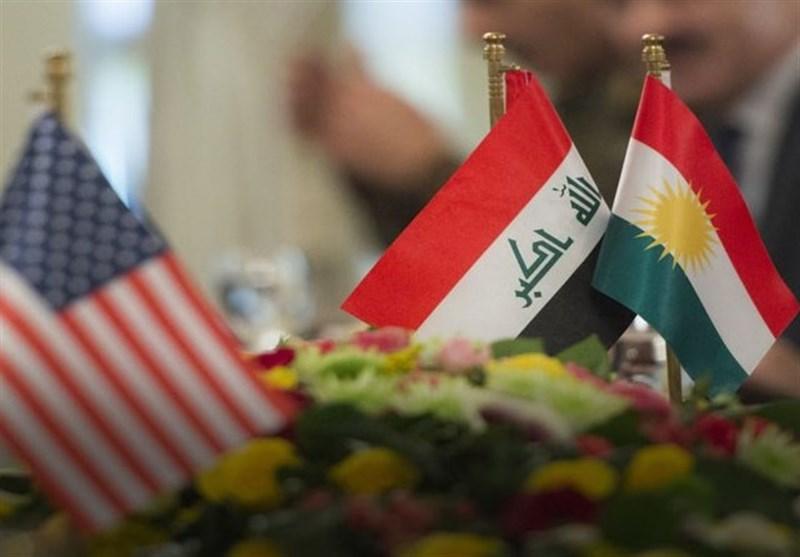Hormoz Jafari, in an interview with the Strategic Council of Foreign Relations, referring to the news published about the agreement between the United States and the Iraqi Kurdistan Region to invest in the field of artificial intelligence in this region, said that this agreement could be analyzed in various domestic, regional and macro-international fields from the perspective of US-China competition to influence the technological areas of the region.
He said that the US while trying not to involve itself in the conflicts between the Kurdistan region and the central government, has very close interactions with the Kurds of Iraq and considers them as its friends in this country and Syria.
He stated that Iraqi Kurds had taken an active policy in attracting foreign investment in recent years and said that “from this point of view, the interaction of US companies with the Kurds is not considered a new approach. At the same time, at the regional level, we are witnessing active policies to attract foreign investments only in the field of artificial intelligence; As far as the past year in the region, about three billion dollars of investment was made only in the field of artificial intelligence, and estimations indicate that by 2026, this figure will reach more than six billion dollars”.
This analyst of international issues cited the extensive application and strategic importance of artificial intelligence in various economic, military, and security dimensions as the reason for this serious luck of the countries of the region and continued that in 2017, the UAE formulated the strategic policy of artificial intelligence for the first time. Now it has a ministry called artificial intelligence. Saudi Arabia also has extensive interactions with the US and China in this field.
Jafari, while explaining the dimensions of the strategic competition in modern technologies between the US and China, added that the Chinese had had much influence in this field at the regional level. Considering some goals that China can advance by developing the Chinese infrastructure of artificial intelligence in the region, the Americans have become very worried and are trying to reduce the influence and monopoly that Chinese technology companies have by entering this market and meeting the needs and demands of the countries in the region, especially their former allies and partners, including Iraqi Kurdistan and the Arab countries in the region in general and be able to compete in this regard.
He emphasized that Americans have realized that if they do not invest and provide services and technology in this area in particular and do not enter the technological market of their former partners and allies, these countries will not wait. The options and proposals of other countries, especially competitors, i.e., China, are examining the strategy of the US.
The head of international affairs of the Science and Technology Park of Sharif University stated that the world has widely moved towards using artificial intelligence, and Iran has also been active in this field and has made good progress. These achievements have been reached, but regional players, including the Iraqi Kurdistan region, are trying to achieve these technologies by transferring facilities and technology to their region. Of course, it seems that the two centers that will be established in the Kurdistan region of Iraq are primarily educational, as the idea of free education for students has been proposed.
Stating that this proposal was first proposed by the Americans and Mohammad Shukri, the head of the Kurdistan Region Investment Organization, welcomed it, Jafari added: This investment is small and is not very heavy. While major American technology companies agreed to make a heavy investment in Saudi Arabia at the Riyadh 2023 conference, which was considered a strategic investment, they did not make such an investment regarding Iraq; at the same time, the dimensions of the current declaration are also significant for acting at the level of the autonomous region of Kurdistan.
Regarding the possibility of the US using security against neighboring countries, especially Iran, through the creation of this artificial intelligence center, he stated: Technological issues know no borders, and actors try to meet their needs as much as they can.
At the same time, this expert on international issues suggested that Iran, while respecting the considerations of Iraqi national sovereignty, should step forward to meet the technological needs of the Kurdistan region and form strategic interactions in this area. Due to the broad commonalities and closeness with Iran, Iraqi Kurdistan can be an important actor in providing Iran’s national interests. Iran can also be a good provider for Iraqi Kurdistan in this area.
He stated that Iraqi Kurdistan has strategic and extensive interactions with the central government, and establishing these artificial intelligence centers is not evaluated in opposition to the central government. It will be at the regional level, and in this case, some countries in the region, such as Turkey, which are allies of America, will have strategic problems with them.
Jafari said Turkey feels much danger regarding the Kurds and sees its national security seriously threatened. But Iran does not feel such a threat towards the Kurds, and by the way, there is a very high capacity for Iran to strengthen its power of maneuver and acting at the regional level by using the Kurds’ role.










0 Comments